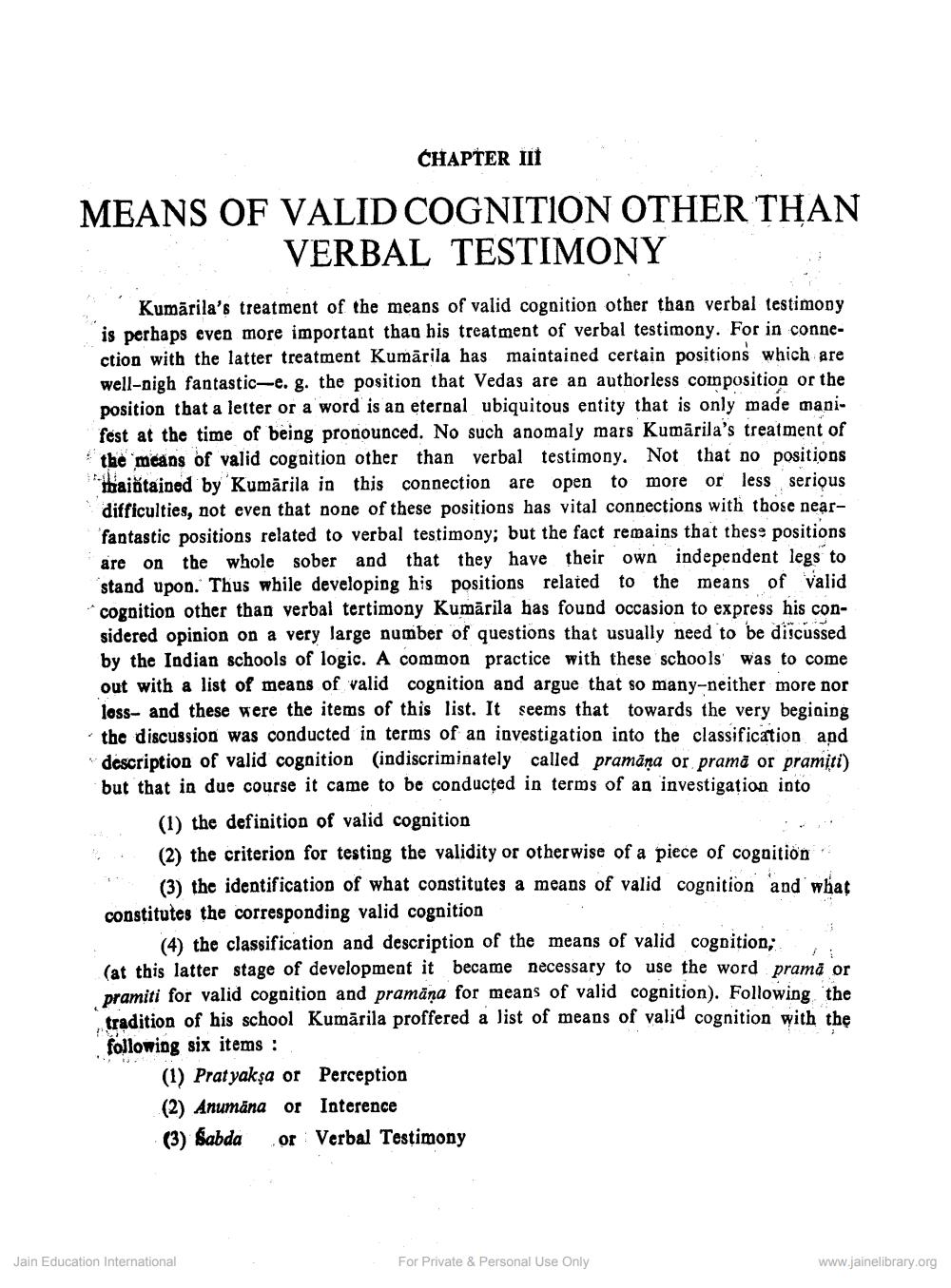________________
CHAPTER III
MEANS OF VALID COGNITION OTHER THAN VERBAL TESTIMONY
Kumārila's treatment of the means of valid cognition other than verbal testimony is perhaps even more important than his treatment of verbal testimony. For in connection with the latter treatment Kumārila has maintained certain positions which are well-nigh fantastic-e. g. the position that Vedas are an authorless composition or the position that a letter or a word is an eternal ubiquitous entity that is only made manifest at the time of being pronounced. No such anomaly mars Kumārila's treatment of the means of valid cognition other than verbal testimony. Not that no positions. maintained by Kumarila in this connection are open to more or less serious difficulties, not even that none of these positions has vital connections with those nearfantastic positions related to verbal testimony; but the fact remains that these positions are on the whole sober and that they have their own independent legs to stand upon. Thus while developing his positions related to the means of valid cognition other than verbal tertimony Kumārila has found occasion to express his considered opinion on a very large number of questions that usually need to be discussed by the Indian schools of logic. A common practice with these schools was to come out with a list of means of valid cognition and argue that so many-neither more nor less- and these were the items of this list. It seems that towards the very begining the discussion was conducted in terms of an investigation into the classification and description of valid cognition (indiscriminately called pramana or pramă or pramiti) but that in due course it came to be conducted in terms of an investigation into
(1) the definition of valid cognition
(2) the criterion for testing the validity or otherwise of a piece of cognition
(3) the identification of what constitutes a means of valid cognition and what constitutes the corresponding valid cognition
(4) the classification and description of the means of valid cognition;
(at this latter stage of development it became necessary to use the word pramă or pramiti for valid cognition and pramana for means of valid cognition). Following the tradition of his school Kumärila proffered a list of means of valid cognition with the following six items:
(1) Pratyakia or Perception.
(2) Anumana or Interence (3) Sabda
Jain Education International
or Verbal Testimony
For Private & Personal Use Only
www.jainelibrary.org




